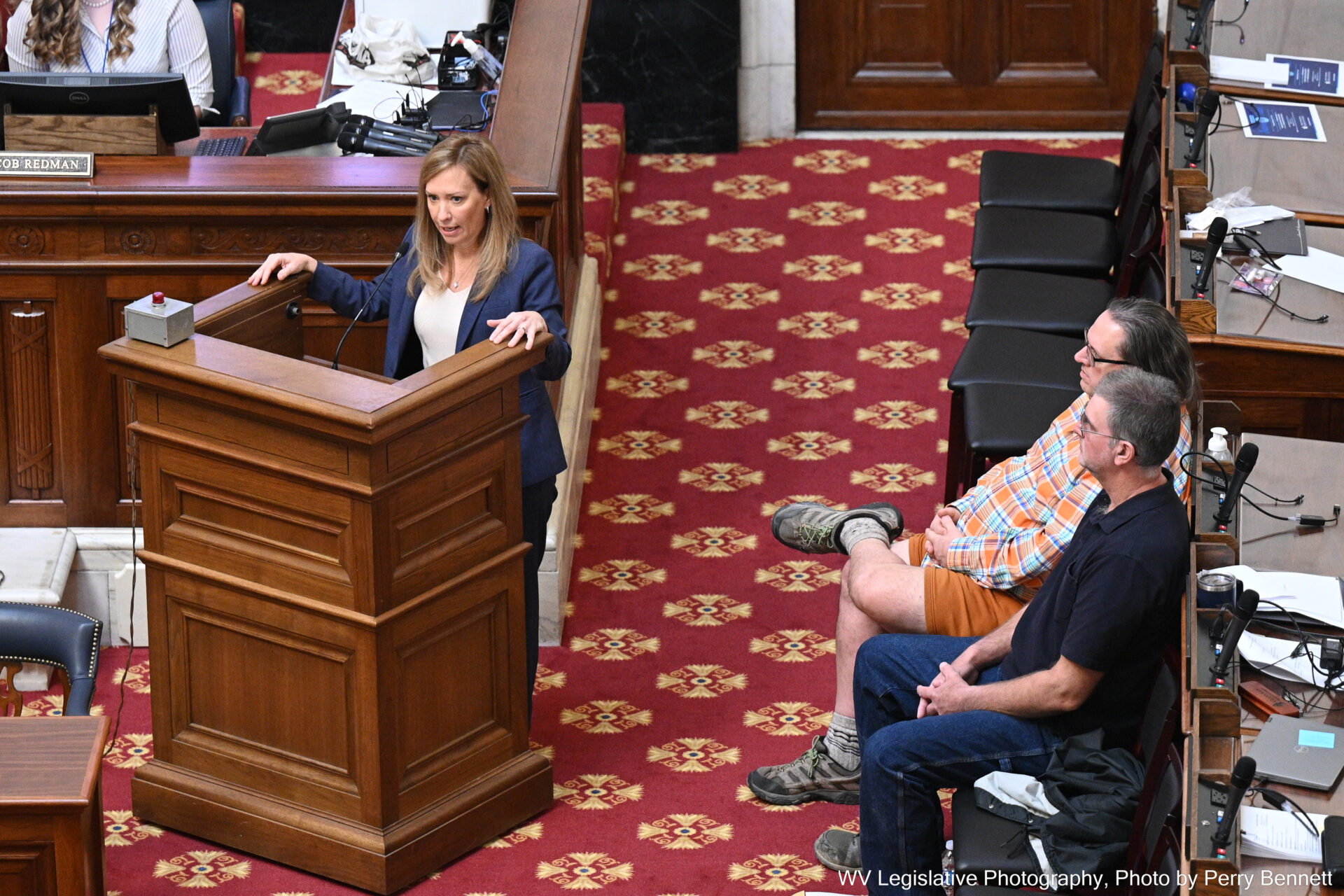If West Virginia voters say yes to "Amendment 2" on the November ballot, the state legislature will have the authority to eliminate business equipment and inventory taxes and the property tax on vehicles.
If West Virginia voters say yes to “Amendment 2” on the November ballot, the state legislature will have the authority to eliminate business equipment and inventory taxes and the property tax on vehicles.
Senate President Craig Blair, R-Berkeley, embraces the tax cut plan, but many county leaders fear the tax cuts would devastate basic public services.
Blair said one of many examples of the harm caused by West Virginia’s equipment and inventory tax began in 2016, when coal demand was low, mines shut down and moved equipment out of state or sold it. Blair said fast forward to the past two years — he figures the state lost between $75 million to $125 million, because coal demand and prices went up. But miners didn’t have the equipment to get it out of the ground.
“We’re missing out on the severance tax, we’re missing out on the personal income tax, because of the supply chain issues,” Blair said. “The people that sold their equipment, machinery — they can’t get it back fast enough to be able to be part of this wave, and we’re totally missing out on that.”
Blair said to consider the tax plight of long time Cabell County manufacturer Blenko Glass, and the hundreds of molds they use intermittently — but pay tax on every year. He mentioned the possibility of Amazon and other “store and ship” facilities setting up warehouses in West Virginia border counties with no inventory tax.
“I will quote to you from the West Virginia Center on Budget and Policy, which tends to lean a little to the left, I believe,” Jim Morgan said. “One of their facts is that during the past decade states with property taxes on business, machinery, equipment and inventory saw more manufacturing jobs growth on average, than the states without such taxes.”
That statement comes from former state delegate and current Cabell County Commission president Jim Morgan. Morgan said West Virginia counties get up to 40 percent of their operating budget, for fire, law enforcement, schools, solid waste — money from the taxes Blair wants eliminated.
“In Cabell County, we would lose $11 million in total school losses that won’t be made up by the school aid formula,” Morgan said. “That money would just be gone at that point. The legislature has said, that’s okay, we will backfill that and make you whole. Huh? As if we trust the legislature?”
Blair said a continuation of flat line budgets netting state revenue surpluses gained over the past several years will more than make up for the nearly $600 million in tax receipts now covering county bills.
“It’s not a big demand on the government. In fact, it makes it so that our agencies can get rid of the ‘spend it or lose it’ mentality,” Blair said. “That even includes getting rid of the regional jail fees for these counties. There are a multitude of examples out there when somebody is crying wolf, that we’re going to put the counties out of business, or we’re going to hurt the counties. It’s nonsense. What we’re trying to do is give him a hand up instead of being stagnant or declining, like most of them have been.”
Morgan countered that revenue surpluses are never guaranteed, and flat line budgets predicated on less spending have proved disastrous for state maintenance, growth and prosperity.
We have teaching vacancies, we have correction officer vacancies,” Morgan said. “Despite construction being done in high volume areas on major highways, roads are in poor shape. We’ve cut higher education. We’ve cut all kinds of things and he says we have a flat budget. Yet, West Virginia is falling apart.”
When Blair became senate president, he said he wanted 400,000 people to come to West Virginia. He said that can happen with eliminating those business property taxes. He said that will help create the industries and jobs that will keep graduates at home and bring young professionals in.
“And guess what? They’re the baby makers,” Blair said. “They’re the ones that fall in love, and have jobs here and stay here and make babies and send their kids to our school systems. And voting ‘yes’ on these constitutional amendments will actually make it so that we can accelerate the work that we’re doing and put more money into the people’s pockets.”
Morgan argues the legislative tax replacement plan is part of a state power grab.
“One scenario that we like to point out, if we were short $25 million in Cabell County, the legislature could very well say if you need more money, just raise everybody’s property tax in your county. The county commissions would be the bad guys for raising taxes to provide services — volunteer fire departments, EMS, 911 — all those things that the county funds. I believe it’s a mistake.”
The decision will be made on Nov. 8, with voters saying yes or no to “Amendment 2.”
